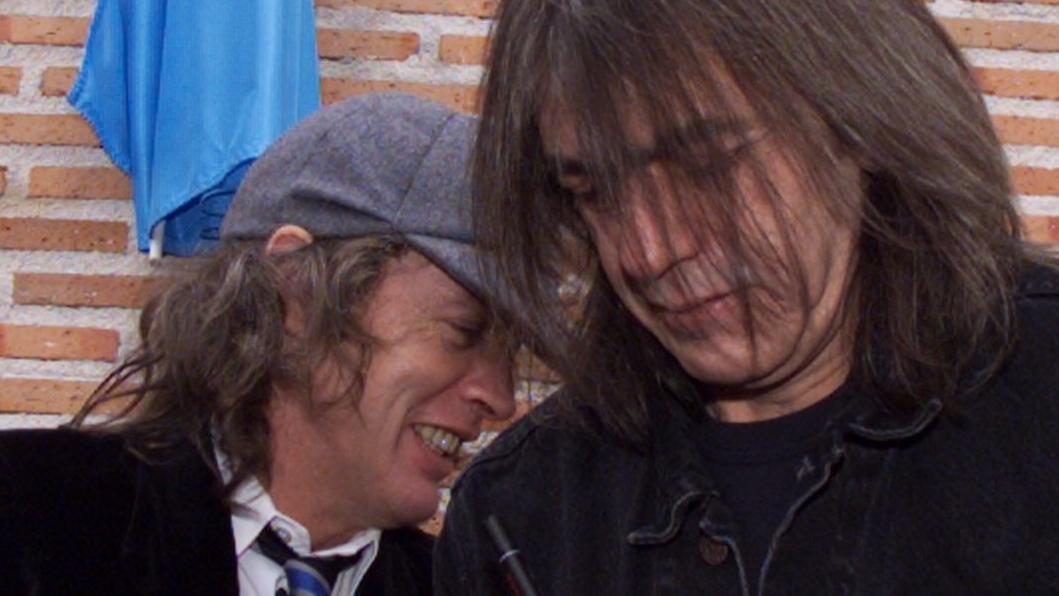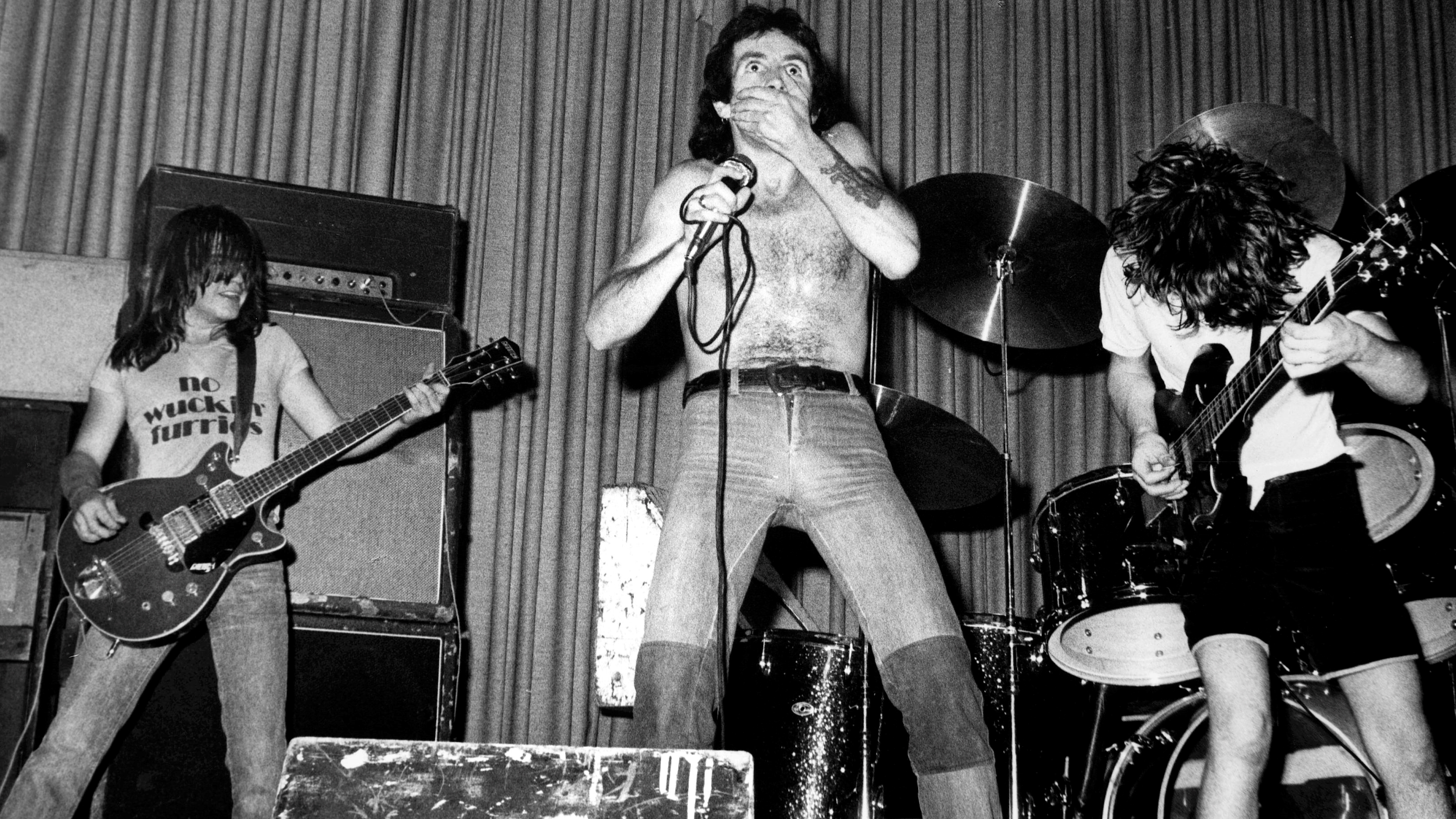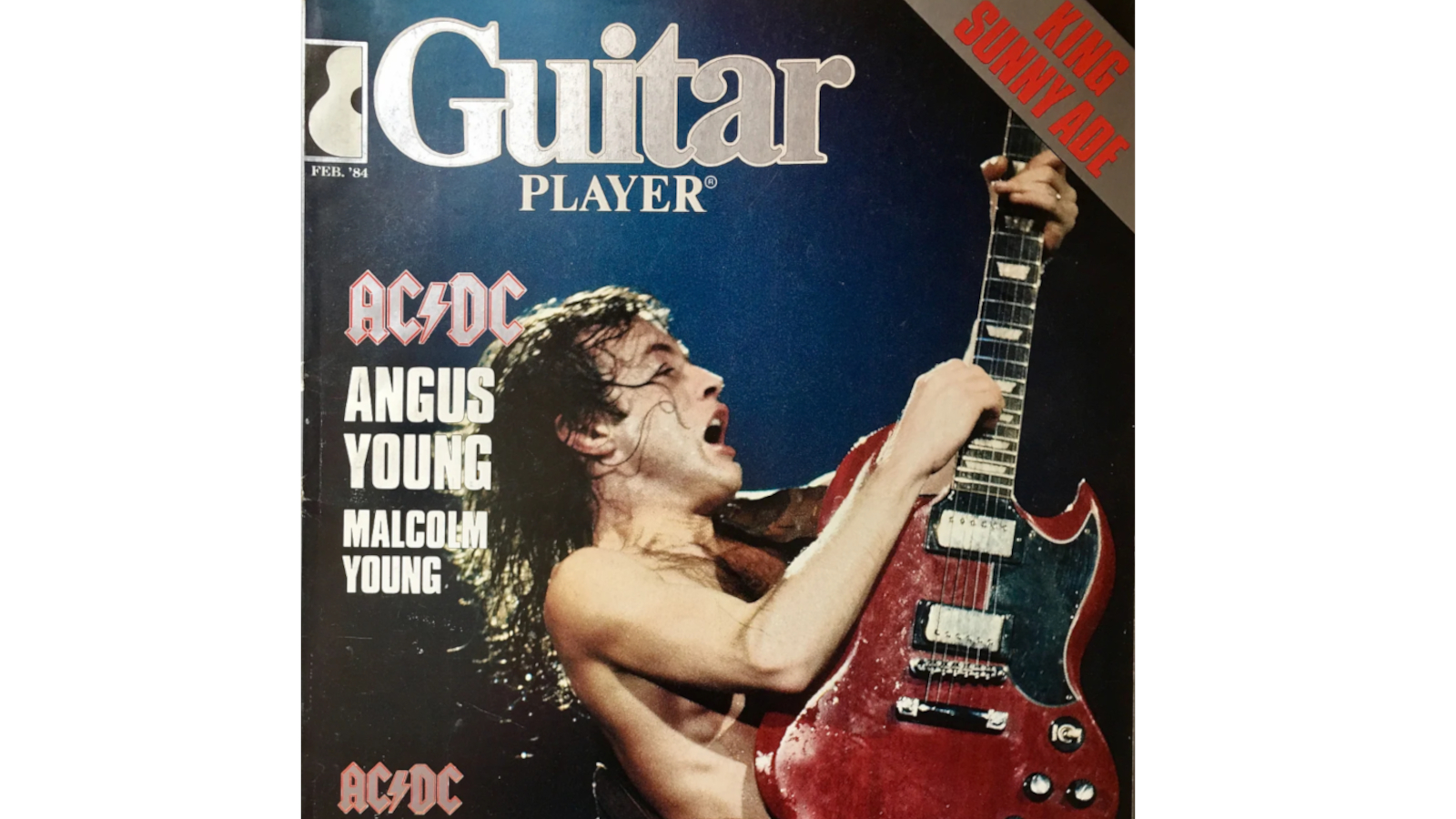“I'm Just Like a Color Over the Top. He's the Solid Thing”: Angus Young on Malcolm Young and the Vital Chemistry of AC/DC
Read this classic Guitar Player interview with one half of the greatest guitar dueling brotherhood in hard rock history.

AC/DC was the brainchild of Malcolm Young (1953-2017) and his younger brother by two years, Angus. The last of seven brothers, both were born in Scotland, though the Young clan emigrated to Australia in 1963.
An acoustic guitar usually accompanied the family on weekend camping trips, and all the brothers learned to at least strum some chords. Malcolm took up guitar a few years before Angus, and both lads played in local teen bands.
Routine day jobs fueled their dreams of making it as rockers. "I was a printer," confided Angus, "and I just got out as quickly as I could.”

The brothers’ parents were upset when their youngest boys announced that they were quitting work to play in a band. However, 1975's High Voltage and T.N.T. albums were proof of AC/DC’s awesome potential.
One of the greatest electric guitar duos in hard rock history, it was the launch of a musical legacy that continues to inform guitar players decades down the line.
The following extracts are taken from an interview that appeared in the February 1984 edition of Guitar Player following a conversation with Angus Young in 1983 when AC/DC were on their gargantuan Flick Of The Switch world tour…

Do you play all the solos on AC/DC records?
Yeah, my brother's too lazy. It interferes with his drinking.
What's the difference between your brother's and your roles in the band?
I'm just like a color over the top. He's the solid thing; he pumps it along. His right hand is always going. In that field I don't think anyone can do what he does. He's very clean; he's very hard. It's an attack. Anyone that sees him or knows about guitars can tell.
Does the fact that you're the most recognizable member of the band ever bother Malcolm?
No. He was the one that shoved me in the first place. He got me into it: "I want you to do all of this." In the early days we used to fool around on some of our first albums. He would do little bits of guitar. We would double up, swap, do a solo here, a solo there. Malcolm's more experienced at it then me.
Malcolm's more experienced at it then me
Angus Young
Playing solos or rhythm?
Anything. He knows what he's doing with it. He's got his own style and his own sound.
Could you switch roles?
I could copy it. I don't think I could fill it, not like he does.
Could he play your solos?
Ah yeah, easy [laughs]. I look at it this way: That's the easiest parts, the solos. There's no great thing in being a soloist. I think the hardest thing is to play together with a lot of people, and do it right. I mean, when four guys hit the one note all at once – very few people can do that.
It's mainly the songs that we worry about. I won't sit there and spend 12 hours on a guitar solo
Angus Young
Does being brothers influence the way you and Malcolm play? Others, such as the Van Halens and Schenkers, have said that they can sense what their brothers are going to do.
I don't know about that. I just think as brothers you can sort of shout each other down. You can go, "Hey, cut that out!" So you've just got a good rapport.
Malcolm does inspire me. He has very high standards in his way of playing and everything. He's very musical minded, but he can go to the extremes, overindulgence.
Like if we are in a studio and I have to do these things like solos, he'll say, "I want this to rock like thunder," and you've got to make it rock. He just says something like that and you know exactly what he means.
Will he ask you to redo solos?
Yeah, if he thinks they're not happening – if he thinks they're not rock enough or don't suit the song. It's mainly the songs that we worry about. I won't sit there and spend 12 hours on a guitar solo. I couldn't. That's pointless. I like to go in and just go, bang away at it.
Explore the AC/DC catalog here.
Get The Pick Newsletter
All the latest guitar news, interviews, lessons, reviews, deals and more, direct to your inbox!
Jas Obrecht was a staff editor for Guitar Player, 1978-1998. The author of several books, he runs the Talking Guitar YouTube channel and online magazine at jasobrecht.substack.com.
“We’d heard Jimi Hendrix, we'd heard the Who, but now we finally got to see these guys. And watching Jimi Hendrix burn his guitar….” Grace Slick on Hendrix at Monterey, Jefferson Airplane and the Spanish origins of “White Rabbit”
“I’m still playing but I’m covered in blood. Billy’s looking at me like, ‘Yeah! That’s punk rock!'” Steve Stevens on his all-time worst gig with Billy Idol — and the visit to Jimi Hendrix's grave that never happened









